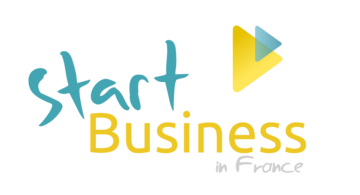Société A Responsabilité Limitée (SARL) is an incorporate business or limited company in France. This type of business has its own legal entity, called personne morale. This means that the business has its own entity, distinct from the entrepreneur or manager.
A SARL has a minimum of two shareholders and up to 100 and can be registered with a minimal working capital of one euro - although this may not be a good idea, as it would not give a stable image to your customers or business partners.
If you wish to start a limited company on your own, you are looking into registering an Entreprise Unipersonnelle A Responsabilité Limitée (EURL). There are other types of limited companies, which I will cover in a future articles, such as Société par Actions Simplifiée (SAS with a minimum of two associates) and Société par Actions Simplifiée Unipersonnelle (SASU with only one associate).
The main difference between EURL/SARL and SASU/SAS, is that entrepreneurs registering a SASU/SAS have a status similar to an employee, hence paying their social contribution towards securite sociale and employee’s pension scheme. These types of businesses are also often used by start-ups and businesses planning to have new investors and a strong development in a few years.
Protect your personal assets from your business in France
The main advantage of starting a SARL in France, is that it will enable you to protect your personal asset. When registering a sole trader in France, such as entreprise individuelle, micro-entrepreneur or auto-entrepreneur, there is no distinction between the entrepreneur and the business, hence being personally liable for the debts generated by the business. If the business was to go into bankruptcy, you would be liable on your personal financial asset (only your main home would be protected).
Registering a French limited company, means that the business has its own legal entity, called personnalité morale, meaning that you will not be liable for the debts generated by the business (unless you committed a management offence called faute de gestion). Your liability will be limited to your apports, i.e. what you have brought into the business (working capital or equipment).
Having a business partner associé
If you plan to start a business in France with someone you are not related to, i.e. no spouse or civil union partner, and do not want to employ that person, then the only option will be to start an incorporated business such as SARL or SAS.
You will have to decide on your role and investment. Will you be an associé, i.e. an associate investing in the business, but not involved in the day-to-day management of the business? Or do you also want to manage the business, in that case you will be a gérant. There are three types of gérant:
- Majoritaire owning at least 50% of the shares.
- Minoritiare owning less than 50% of the shares (hence having a status similar to an employee in terms of social charges and healthcare) or co-gérant with 50% of the shares each.
- Co-managing the business.
This choice will have an impact on the social charges you will pay and your healthcare cover.
Increased business credibility
Having an incorporated business in France, such as EURL, SARL, SAS or SASU is perceived as a more stable business for partners and customers. This would also be reflected in the working capital. Legally you can register a SARL with a working capital of one euro, but this does not look very serious. A working capital of 1,000 euro to 2,000 euros would be more appropriate to start with, knowing that you have several years to release the full working capital libération partielle du capital social. You will also be able to increase your working capital in the future.
A SARL is for instance perceived as more stable than an auto-entrepreneur, partly because it has to comply with full accountancy rules.
Developing your business in France
If you plan to further develop your business in the next few years, a SARL or SA are great tools, as it will enable you to add extra shareholder associés. For high tech companies or start-ups, SAS seems to be more popular, as it enables for financial investors to join in.
Option for the French incorporation tax
Social charges and income taxes are quite high in France. The main drawback of sole traders in France, called entreprise individuelle is that the profit is liable to social charges of 46%. This comment does not apply to auto-entrepreneurs, also called micro-entrepreneurs, who pay their social charges based on their turnover. Their social charges rate vary from 13.4% for trade, to 23.1% for manual services and 22.9% for professions liberale.
One way to decrease profit is to deduct business expenses, e.g. car mileage or business promises’ rent etc. But some businesses in France, such as consulting, web based or home based activity, may not have many expenses to deduct. This would lead to a high taxation.
Registering a SARL can be a way to optimise your social and personal taxes. As a gerant (manager) and business associate (shareholder), you can indeed pay yourself in two ways:
- By paying yourself a monthly income called rémunération du gérant taxed at 46% by RSI.
- By paying yourself dividends after the loss and profit account has been validated by your accountant. If you opt for the incorporation tax, called Impot sur les Societes (IS), the business will pay this tax of 15% up to 38,250 euros of profit, then 33.33% above. Note that all candidate for the French presidential election have mentioned their wish to decrease IS, down to 28% for the current government and down 25% for François Fillon.
Once the SARL has paid the incorporation tax (IS) and the shareholders have validated the distribution of dividends, these dividends would be distributed according to the percentage of shares own. As an individual you will declare these dividends in your French income tax form.
